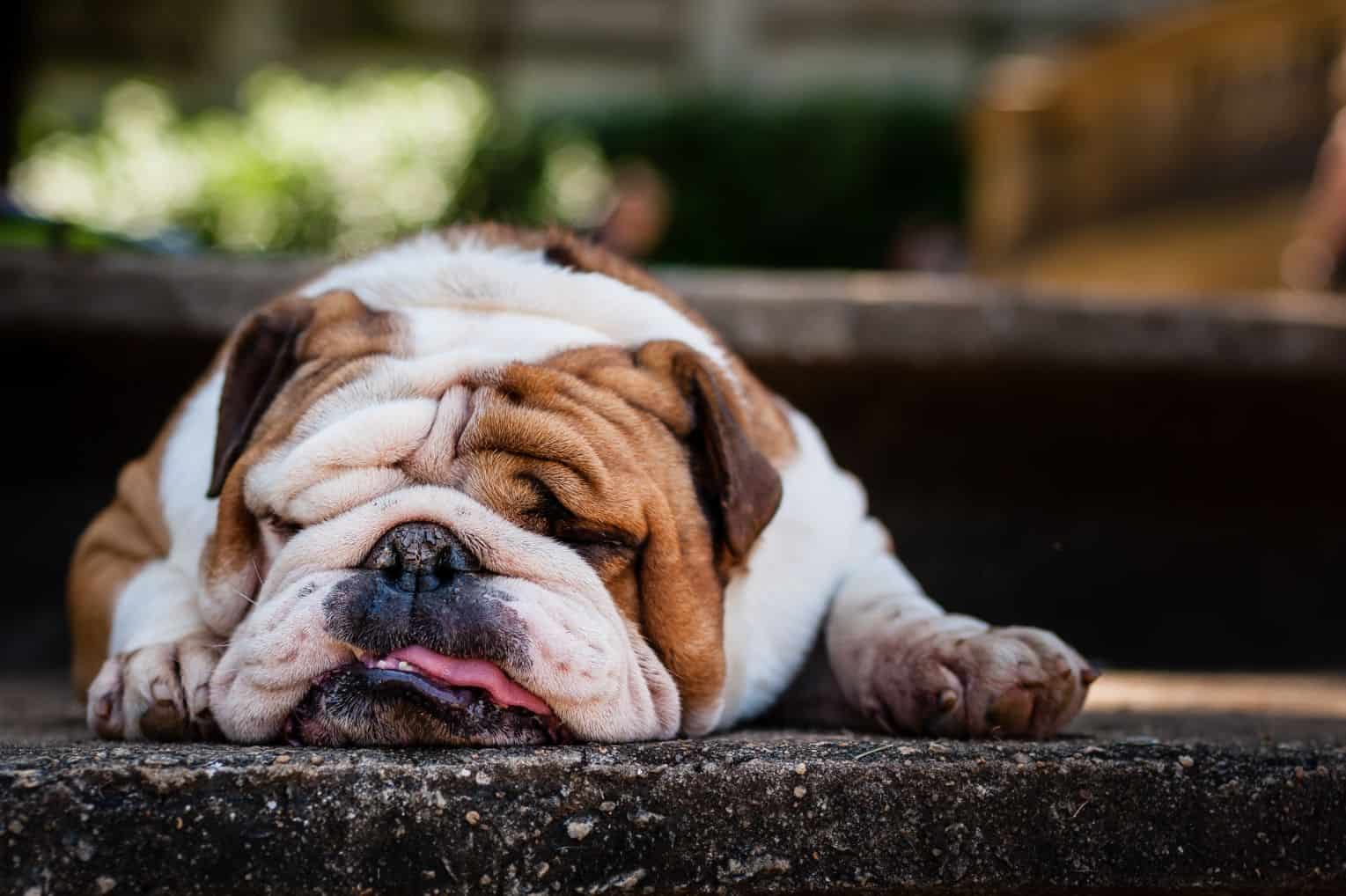Snorts And Farts: A Guide To Bulldog Problems

At Animal Medical Hospital & 24-Hour Urgent Care, bulldogs are among some of our favorite breeds. These smushed-faced cuties are often full of personality and energy and quickly win their way into the hearts of all. Bulldog breeds are not without their issues, though, and it is important for potential pet owners to understand common bulldog health problems to know what to potentially expect.
The Brachycephalic Problem
One of the main issues facing our bulldog buddies is their facial anatomy.
Bred intentionally with short noses to be able to get right up on a bull, bulldogs belong to the brachycephalic category of domesticated animals. Joined by pugs, shih tzus, and Persian cats, brachycephalic animals have a skull shape that make them seem to have no snout at all.
Sometimes, the characteristics associated with being brachycephalic get out of hand and these exaggerated characteristics, known as brachycephalic syndrome, can cause problems. These changes include:
- Small nasal openings
- A large tongue
- A narrow windpipe
- Elongation of the soft palate
- Excess of tissue in the back of the throat
These changes all lead to breathing difficulty, which can lead to increased noise (hence the snorts). Pets with brachycephalic syndrome may be more prone to heat exhaustion, and carry a higher risk for anesthesia.
Some bulldogs may benefit from veterinary surgery to correct some of their issues stemming from their smooshed in face.
Other Bulldog Problems to Note
Bulldog problems don’t stop with breathing trouble, however. Unfortunately bulldog breeds are prone to other issues as well. These can include:
Cardiac disease—Bulldog puppies are born with heart defects at a higher rate than the general population. Congenital heart issues are something that bulldog owners should be aware of.
Gastrointestinal trouble —Bulldogs tend to swallow a lot of air when breathing due to their brachycephalic build, resulting in more gas than normal. They also tend to have sensitive stomachs and experience things like diarrhea more than the average dog. Some bulldogs may also suffer from fecal incontinence if the nerves to their backend are not normal, which can happen depending how short the tail is.
Ocular problems—Prolapse of the gland of the third eyelid (cherry eye) and dry eye are common bulldog problems.
Orthopedic issues —Because of their build, bulldogs are prone to have things like hip dysplasia and malformations of bones or vertebrae that may cause issues.
Reproductive restrictions —Bulldogs are typically unable to successfully whelp pups without a Caesarean section, which can be a costly endeavor for potential breeders.
Skin problems —Besides being prone to skin allergies, bulldogs tend to get infections in their skin folds around the nose and tail. They also are prone to ear infections.
Most dog breeds have their potential issues, but bulldog problems are undeniably more prevalent. It is important to understand these risks before committing to the breed, no matter how adorable you think they are.
If you have questions about the care of these great dogs, give us a call. We are happy to help you decide if a Bulldog is the right canine companion for your family.
